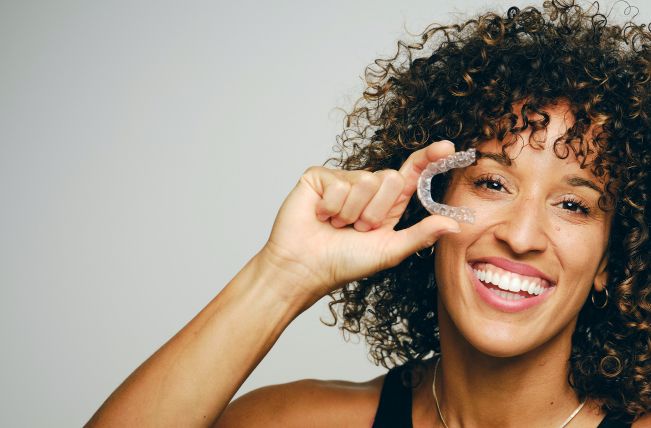Do you have a crooked smile or gaps between your teeth? Dental alignment issues can disrupt your smile aesthetics but also put you in danger of certain oral health problems. Your dentist can help straighten minor alignment problems in your smile with Invisalign.
These custom-made plastic aligners are worn over the teeth and then swapped out every two weeks to gradually push the teeth into the desired straighter position. While highly effective, not every patient will find success with these aligners.
Your dentist can evaluate your unique smile during a consultation to find the right way to achieve your smile aesthetic goals. But you can better understand what to expect from this appointment when you know more about the eligibility needs of this treatment ahead of your visit. Read on to find three characteristics a dentist will consider when determining if a patient can benefit from Invisalign treatment.

No Other Underlying Dental Problems
Invisalign aligners will help to close gaps between teeth, align crooked teeth, and treat other bite problems. A dentist will perform an exam of your smile to ensure these aligners are the best way to fix these concerns. But they will also need to evaluate your oral health when considering your eligibility for this treatment.
Dental problems like tooth decay and gum disease can affect your dental alignment and disrupt your teeth-straightening effort if left untreated. So your dentist will need to ensure your smile is healthy before they pursue this treatment.
If you have other fixtures in your smile, such as dental implants, they may also affect your treatment. Implants will not move as your natural teeth will, so you may have trouble straightening your teeth if you have these fixed appliances in your smile. You may need to consult with an orthodontist to learn how to align your teeth with implants already in place.
Practices Good At-Home Oral Hygiene
As mentioned, dental issues can threaten to disrupt Invisalign treatment. An ideal candidate for this treatment will therefore need to make an effort to prevent these problems on a consistent basis. They will need to prioritize their oral health and practice at-home care like good oral hygiene.
This entails brushing teeth at least twice a day and flossing on a daily basis. Not only will this keep the teeth healthy, but it also ensures the patient can complete proper maintenance for their aligners. Your dentist will let you know how you can clean your aligners to maximize hygiene and benefits during your treatment.
Commits to the Teeth-Straightening Process
Invisalign treatment involves wearing aligners over your teeth for at least 22 hours each day, including during sleep. You will swap out the aligners as directed for six to 18 months, depending on your specific needs. Success in this treatment relies on the patient’s compliance with this process.
If you skip wearing Invisalign for a day or two, the teeth will start to shift out of alignment. Then the aligners will no longer fit properly, disrupting your treatment. Then your dentist may need to make new aligners to get treatment back on track. The ideal Invisalign patient will understand this process and be willing to commit to it completely for best result.
